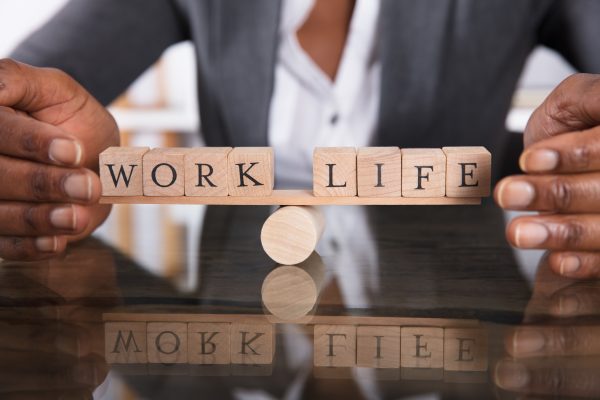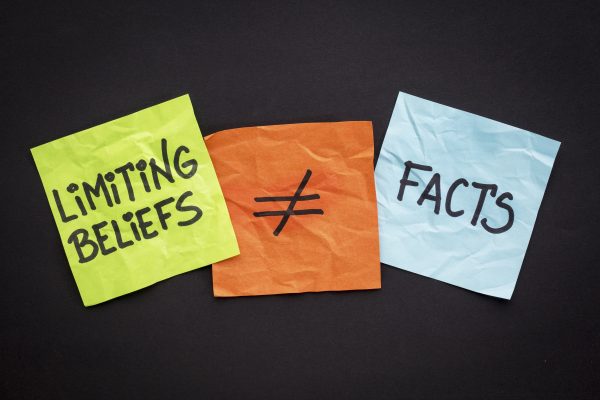Over the past few blogs, we have focused on resilience. What it is and why becoming more resilient in our often uncertain working environment is critical.
You can read our previous posts here.
The uncomfortable fact is that resilience isn’t a switch to be flicked off or on; it is a mindset to be established that needs work and focus.
The issue for many people is the barriers they experience that slow them down in becoming more resilient.
Here are two we notice most with the clients we work with.
Handling Negative Experiences

‘Just get on with it’ or ‘develop a stiff upper lip’ are phrases from the past regarding how we handle what is thrown at us today.
Last week I talked about Good and Bad Stress which you can read here, and the topic of stress created by events we experience and how we process them is a real barrier to building our resilience.
Fact: Stress is often brought on by our inability to deal with negative experiences.
Globally we now have the highest level of alcohol and drug addiction which are related at various levels to how we process negative experiences and the emotions they trigger.
Who hasn’t had a bad day and opened a chilled Chardonnay to relax? Many of us, I suspect.
Though others get into a pattern, which is a daily occurrence over months and years, it often doesn’t stop at a glass as they ‘buffer’ away their negative emotions; without looking at them critically.
Handling our negative experiences is about processing our thoughts rather than rushing to a quick fix from addictive substances. While wine and drugs give a dopamine hit and a ‘better feeling’ spike, it is short-lived, and ultimately the negative feeling increases too.
Therefore getting perspective around what we are thinking is a good first start.
Humans are amazing, and our minds are incredible though one part of our brain has not developed much over the years.

It is known as the Limbic brain, whose job is to protect us at all costs. Unfortunately, this part of our brain can overreact, and that comment from a colleague or someone disagreeing with us at work or on social media can blow up into much more than it is, which then stalls our ability to bounce back.
Talking things through and examining what we are making our thoughts mean (they aren’t always true) with a coach, such as ourselves, will help; catching them is the first step.
I wrote about the topic of managing your mind and thoughts late last year, which you can read here.
A quick recap on the premise of the article is that we can both choose and manage our thoughts.
This is part of a growth mindset that alters our ability to perform in all areas of our life, especially when it comes to becoming resilient.
Developing A Work-Life Balance

A challenge for many people I work with who are often obsessively hard-working over-achievers and committed individuals where work plays a huge part in their lives: Is switching off and getting the balance right.
These individuals strive for perfection in all areas of their lives; let me share a story.
A few years ago, I attended a personal development workshop on focus and productivity and what a boost they are in managing our life.
The facilitator talked about how the state of her laundry basket often reflected how well her business was performing!
A huge chuckle went around the room as we all agreed that her anecdote about the constant balance of our lives was uncomfortably true.
We are all on or all off.
Many of us get the balance correct regarding hours at our desk working, though others do not.
Remember March 2020?
Covid accelerated the remote working revolution.
Many employees, rather than use their commute time for personal self-care, took it as an opportunity to ‘do’ more work.
Navigating an appropriate work-life balance takes work, so here are some suggestions to help.
Look at your beliefs; I wrote a post on this earlier in the year. Many of us still think we must ‘do it all’, which is a marker of successful people.

Being constantly available and the font of all knowledge isn’t possible. This might be cliched, and you must put yourself first; otherwise, how can you have the strength, resources, and resilience to help others?
So obvious as you read this post, yet even the best of us forget this gem.
When it comes to putting ourselves first: Planning and balancing your work and home life together is a game changer.
This might surprise you, and as I am organising my year, I first add all my personal events into my Microsoft calendar; including holiday dates and girlfriend weekends, theatre visits, visits to my parents, special birthdays, development courses; and so on.
Balance has many elements, and having different personal activities keeps perspective and alignment with all my values.
I build work around my diary, and it is fascinating that making this decision opens the space for a well-rested and happy Julia who can deliver her best self for clients and always can bounce back.
A win-win for all, I would say.
Until next time,
Julia
About Zestfor
Zestfor delivers training coaching and development programs and resources scientifically tailored to develop leaders and their teams in technical markets – including Pharmaceutical, I.T., and Life Sciences.
Our blend of in-classroom, online, and virtual live-stream delivery methods will engage and assure even the most introverted team members from the first meeting.
Please register your interest here to learn more about our new resilience programmes. Let us arrange a brief chat; call us at 0845 548 0833









